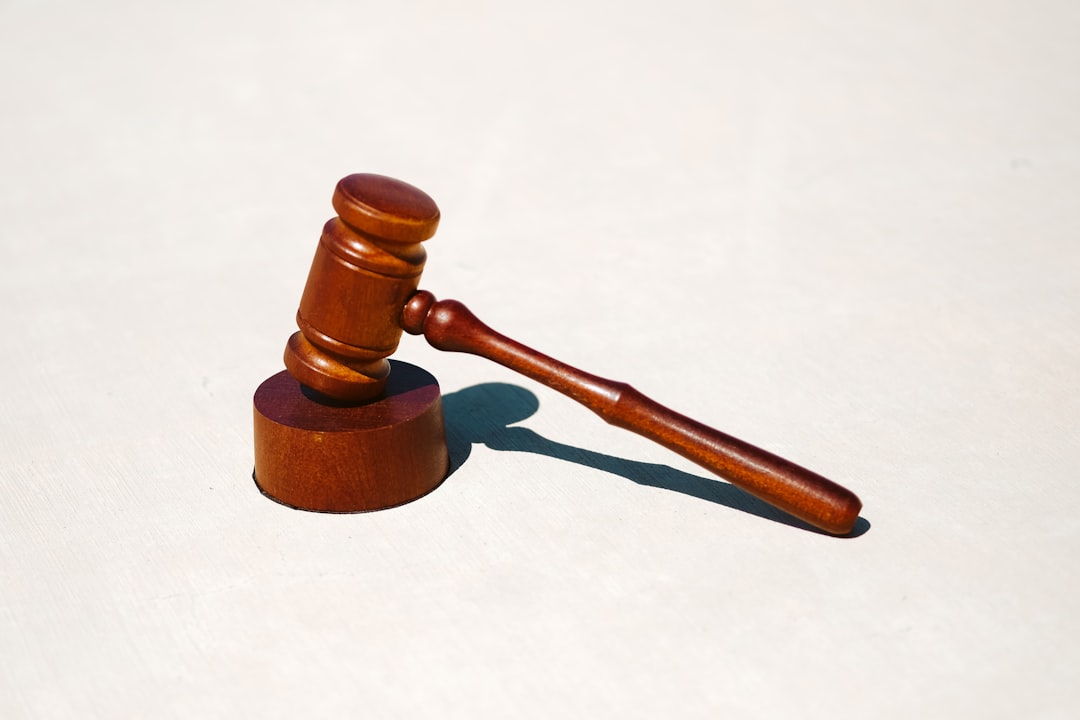Utah residents facing frequent robocalls from telemarketers, scammers, or political campaigns have legal options under the Telephone Consumer Protection Act (TCPA). "Can I Sue For Robocalls Utah?" is a common question as these automated calls can be mitigated by understanding one's rights and taking action. Class-action suits against companies violating anti-telemarketing laws are effective in combating robocalls, offering financial compensation and deterrence. By documenting calls, using blocking tools, and knowing their rights, Utahns can protect their privacy and take legal recourse when necessary.
In the digital age, robocalls have become a ubiquitous yet unwanted nuisance in Utah. This analysis delves into the evolving landscape of automated telephone calls and their impact on residents. We explore the legal framework surrounding these calls, specifically examining the Telephone Consumer Protection Act (TCPA) within the state. Furthermore, we dissect common scams targeting Utahns and provide practical tips for identification and mitigation. Additionally, we offer a comprehensive guide on whether and how individuals can take legal action, including suing for robocalls in Utah.
Understanding Robocalls and Their Impact in Utah

Robocalls, automated phone calls often delivering recorded messages, have become a ubiquitous yet unwanted aspect of modern communication in Utah and across the nation. While some robocalls promote legitimate services or organizations, many residents find themselves bombarded with unsolicited calls from telemarketers, scammers, and political campaigns. These automated calls can be particularly problematic for Utahns due to the state’s strict consumer protection laws, which include provisions against deceptive and harassing phone marketing practices.
In Utah, understanding the legal protections available is essential for those facing excessive or malicious robocalls. The Can I Sue For Robocalls Utah question is a common concern. Residents have the right to file complaints with the Utah Attorney General’s Office and seek legal action if they believe they’ve been targeted by illegal robocall campaigns. Knowledge of one’s rights and the ability to document and report these calls can help mitigate their impact, ensuring that Utahns remain in control of their communication experiences.
Legal Framework: The Telephone Consumer Protection Act (TCPA) in Utah

In Utah, the Telephone Consumer Protection Act (TCPA) plays a pivotal role in regulating robocalls and safeguarding residents from unwanted telephone solicitations. This federal law, enacted in 1973, has been amended over the years to keep pace with technological advancements, including the rise of automated calls. The TCPA prohibits certain types of robocalls, such as those made for telemarketing purposes without prior express consent, and establishes strict rules for call tracking and routing systems.
If you’ve received a robocall in Utah and believe your rights under the TCPA have been violated, you may have legal recourse. The law allows individuals to sue for damages if they can prove that they were subjected to prerecorded or automated calls without their consent. This includes not just financial compensation but also injunctive relief to stop future robocalls. Therefore, those who can demonstrate they’ve been harmed by illegal robocalls, such as experiencing stress or anxiety due to the calls, may be eligible to “sue for robocalls Utah” and seek justice under the TCPA.
Common Types of Robocalls and Scams Targeting Utah Residents

Robocalls have become a prevalent and often frustrating issue for Utah residents, with various types of automated calls targeting them daily. The most common categories include marketing and sales calls, debt collection, and scam attempts. Marketers use robocalls to reach a large audience quickly, while debt collectors employ this method to recover debts. However, many Utahns fall victim to sophisticated scams, often posing as government agencies or legitimate businesses. These scams aim to steal personal information, money, or both.
When it comes to legal recourse for these unwanted and fraudulent calls, Can I Sue For Robocalls Utah is a question on many minds. While individual lawsuits can be filed against call centers or companies making illegal robocalls, collective action through class-action suits has proven more effective in holding wrongdoers accountable. Such cases not only provide financial compensation to victims but also serve as a powerful deterrent for future robocall scams targeting Utah residents.
How to Identify and Stop Robocalls Effectively

Robocalls can be a nuisance and, in some cases, a serious threat to personal privacy. Effectively identifying and stopping them is crucial. Start by being vigilant: inspect your call history for unfamiliar numbers or calls from unknown sources. If you frequently receive automated messages, this could indicate a robocall campaign targeting many residents.
Utah consumers have legal protections against robocalls, including the right to sue for damages under the Telephone Consumer Protection Act (TCPA). If you suspect illegal robocalls, document the calls by saving call records and any associated messages. This evidence can be invaluable if you decide to take legal action. Many phone carriers also offer tools or features designed to block automated calls. Explore these options and consider using call-blocking apps for an extra layer of protection.
Can I Sue for Robocalls? A Comprehensive Guide for Utah Citizens

In Utah, as in many states across the country, robocalls have become a pervasive and often annoying aspect of daily life. While some calls promote legitimate businesses or services, others are attempts at fraud or unwanted marketing tactics. If you’ve received harassing or fraudulent robocalls, you might wonder if you have any recourse. Indeed, Utah citizens do have options when it comes to addressing these problematic calls.
The first step is to understand the laws governing robocalls in your state. The Telephone Consumer Protection Act (TCPA) restricts the use of automated dialing systems and prerecorded messages for telemarketing purposes without prior explicit consent. If a call violates this law, you may have the right to take legal action. This includes filing a complaint with the Federal Trade Commission (FTC) or suing the caller in Utah state court. To strengthen your case, maintain records of the calls, including dates, times, and any relevant information about the caller. This comprehensive guide aims to empower Utah citizens by providing them with the knowledge they need to explore their legal options effectively against unwanted robocalls.






